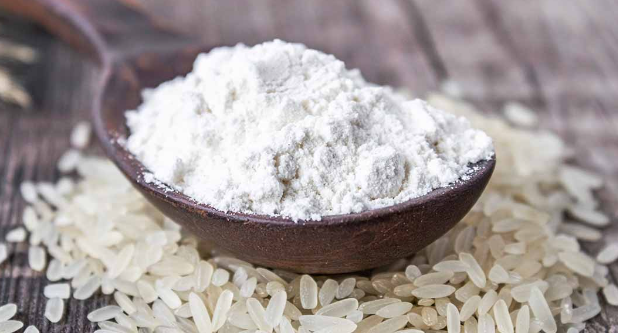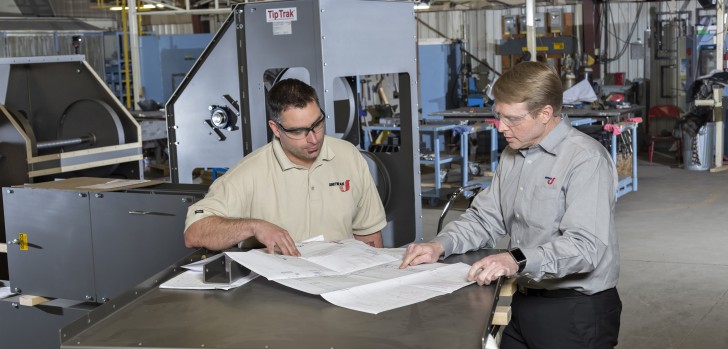Rice Flour
Rice flour, a finely milled powder derived from rice, is a staple ingredient in many global cuisines and an essential component in various industrial applications. This article delves into the properties and uses of rice flour, the challenges associated with its bulk material conveying, and the ideal UniTrak equipment solutions for handling this versatile material.
At a Glance
Rice flour is produced by grinding rice kernels into a fine powder. It is a popular gluten-free alternative to wheat flour and is used extensively in baking, cooking, and as a thickening agent in various culinary preparations. Additionally, rice flour finds applications in non-food industries, including cosmetics and pharmaceuticals, due to its hypoallergenic properties.
Key Characteristics
- Acidity: Rice flour is neutral, typically with a pH ranging from 6.0 to 7.0.
- Texture: It is a fine powder, which can vary in granularity depending on the milling process.
- Hygroscopicity: It can absorb moisture from the environment, which may affect its handling and storage.
- Flowability: Rice flour can be cohesive, meaning it may have poor flow properties and tend to form clumps.
- pH Level: Typically neutral, around 6.5 to 7.5.
- Hypoallergenic: Suitable for sensitive applications.

Common Uses
Rice flour is versatile and used in a wide array of food products:
Culinary Uses:
- Baking: As a gluten-free flour, rice flour is vital in making bread, cakes, and pastries for those with gluten intolerance.
- Cooking: It is used as a thickener in soups, sauces, and gravies.
- Snacks: Key ingredient in making rice noodles, rice cakes, and other traditional snacks in Asian cuisines.
Industrial Uses:
- Cosmetics: Used in powders and face masks for its smooth texture and oil-absorbing properties.
- Pharmaceuticals: Acts as a filler or binder in tablets and capsules.

Challenges in Conveying
Handling rice flour in bulk presents several challenges:
- Flowability: Due to its fine particle size and cohesive nature, rice flour may not flow easily, leading to blockages in conveying systems.
- Dust Generation: Fine particles can create dust, posing health risks and requiring dust control measures.
- Hygroscopic Nature: Rice flour can absorb moisture, leading to clumping and caking, which complicates handling and storage.
- Consistency: Ensuring a consistent flow without segregation or clumping requires specialized equipment.
Equipment Options
Given these challenges, UniTrak offers several solutions tailored to handling rice flour effectively:
TipTrak Bucket Conveyors
Ideal for gentle handling of rice flour, minimizing dust generation and maintaining product integrity during vertical and horizontal transport.
UniFlex Flexible Screw Conveyors
Suitable for moving rice flour over short to medium distances. These conveyors can handle the material's cohesiveness and ensure consistent flow with minimal segregation.
Powderflight Aeromechanical Conveyors
Designed for efficient and dust-free transport of fine powders like rice flour. They can handle the material's flow properties and are effective in preventing clumping.
Bulk Bag Loader/Unloader
Perfect for loading and unloading rice flour in bulk bags, facilitating easy storage and transport while managing dust and maintaining product quality.
Rice flour is a versatile and essential ingredient in many culinary traditions, but its handling presents unique challenges. UniTrak’s extensive experience in bulk material handling ensures the delivery of customized solutions that address these challenges. Whether it's ensuring smooth conveyance, minimizing dust, or preventing clumping, UniTrak’s equipment, including TipTrak, UniFlex, Powderflight, and Bulk Bag Loaders/Unloaders, is designed to meet the specific needs of handling rice flour. Our commitment to innovation and quality ensures that we can manage a diverse range of complex materials, providing reliable and efficient solutions for our clients. Trust UniTrak to deliver the expertise and equipment necessary for optimal bulk material handling.
